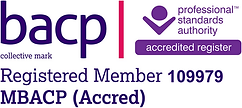As a counsellor, I want to share some insights to help you make the most out of your therapy experience. Therapy can be a transformative journey, but it’s important to be aware of common pitfalls that might hinder your progress. Here are five common mistakes to avoid:
- Holding Back: Therapy is a safe space for honesty and openness. Holding back or sugar-coating your experiences can limit the effectiveness of our sessions. Trust that I am here to support you without judgement, so feel free to share openly and authentically.
- Expecting Quick Fixes: Therapy is a process, not a quick fix. It takes time and commitment to see meaningful change. Be patient with yourself and understand that progress may unfold gradually. Consistent effort and practice of new skills are key to long-term growth.
- Being Passive: Therapy is a collaborative effort. While I provide guidance, your active participation is crucial. Engage in discussions, complete suggested activities, and apply what you learn between sessions. Your involvement plays a significant role in your progress.
- Focusing Solely on Venting: While expressing emotions is important, therapy goes beyond venting. We aim to understand underlying patterns, beliefs, and behaviours to create lasting change. Progress is made when we explore deeper insights and work on practical strategies together.
- Not Sharing Feedback: Your feedback is valuable in shaping our therapeutic journey. If something doesn’t feel right or you have suggestions for improvement, please communicate openly. Your comfort and progress are my priorities.
By being aware of these common mistakes, you can enhance the effectiveness of counselling sessions and your overall therapeutic experience. Remember, therapy is a collaborative process, and your active participation and openness contribute significantly to your own growth: how empowering!
As a counsellor, I’m here to support you every step of the way.






